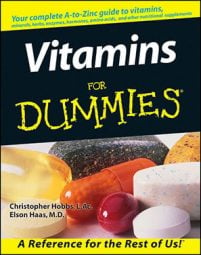Magnesium may be the most commonly deficient mineral in human nutrition, even though dietary sources of this nutrient abound. Because it is the calming or anti-stress mineral, it’s very important to many human functions. Magnesium is also necessary for building body tissue — especially bone.
Key functions of magnesium include:
Relaxes your muscles, including the heart.
Works in concert with enzymes to carry out metabolic functions, including protein synthesis, energy production, and neuromuscular function.
Used for poor sleep, anxiety, menstrual cramps, muscle cramps or spasms, high blood pressure, asthma attacks, and abnormal heartbeats.
You find magnesium mostly in plant foods — grains, legumes, vegetables, nuts, and seeds — although seafood is also high in this mineral. Dark green vegetables are a particularly good source of magnesium. A fascinating parallel exists between plant chlorophyll, the magnesium-rich green pigment that turns sunlight into usable energy that the plant then stores as sugar, and human hemoglobin.
Hemoglobin is a similar chemical molecule in the red blood cells of animals that contains iron, instead of magnesium. Hemoglobin is essential for carrying oxygen to all the cells and tissues of your body.
Because the body easily eliminates excess magnesium, toxicity is nearly unknown, although excess magnesium can cause loose stools or diarrhea. Deficiency is quite common and can lead to muscle cramps, calcification problems, fatigue, irritability, and insomnia.

